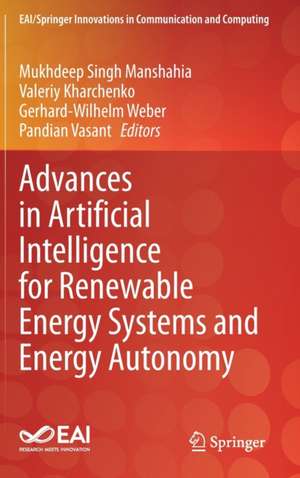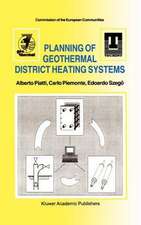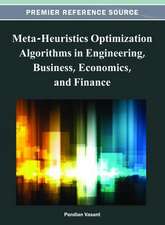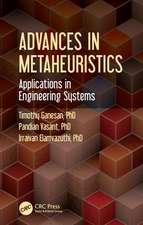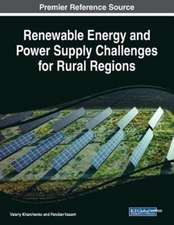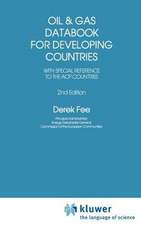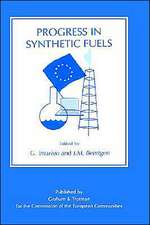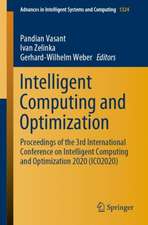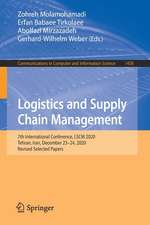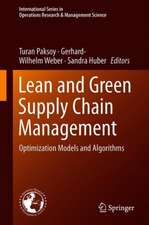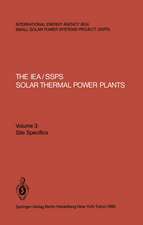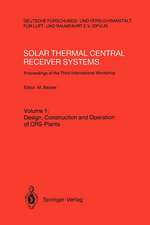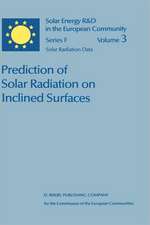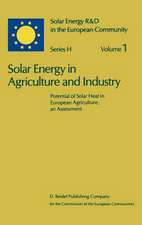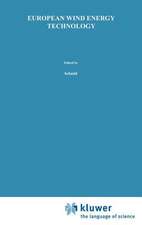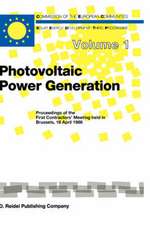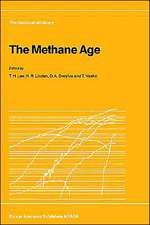Advances in Artificial Intelligence for Renewable Energy Systems and Energy Autonomy: EAI/Springer Innovations in Communication and Computing
Editat de Mukhdeep Singh Manshahia, Valeriy Kharchenko, Gerhard-Wilhelm Weber, Pandian Vasanten Limba Engleză Hardback – 15 iun 2023
| Toate formatele și edițiile | Preț | Express |
|---|---|---|
| Paperback (1) | 884.79 lei 38-44 zile | |
| Springer International Publishing – 16 iun 2024 | 884.79 lei 38-44 zile | |
| Hardback (1) | 1114.52 lei 43-57 zile | |
| Springer International Publishing – 15 iun 2023 | 1114.52 lei 43-57 zile |
Din seria EAI/Springer Innovations in Communication and Computing
- 20%
 Preț: 1165.69 lei
Preț: 1165.69 lei - 18%
 Preț: 1223.88 lei
Preț: 1223.88 lei - 18%
 Preț: 947.35 lei
Preț: 947.35 lei - 18%
 Preț: 796.61 lei
Preț: 796.61 lei - 18%
 Preț: 903.93 lei
Preț: 903.93 lei - 20%
 Preț: 937.02 lei
Preț: 937.02 lei - 18%
 Preț: 1118.62 lei
Preț: 1118.62 lei - 20%
 Preț: 734.66 lei
Preț: 734.66 lei - 20%
 Preț: 754.18 lei
Preț: 754.18 lei - 18%
 Preț: 1117.19 lei
Preț: 1117.19 lei - 18%
 Preț: 891.33 lei
Preț: 891.33 lei - 20%
 Preț: 1277.57 lei
Preț: 1277.57 lei - 24%
 Preț: 1157.42 lei
Preț: 1157.42 lei - 18%
 Preț: 959.19 lei
Preț: 959.19 lei - 18%
 Preț: 1111.22 lei
Preț: 1111.22 lei -
 Preț: 253.35 lei
Preț: 253.35 lei - 18%
 Preț: 952.09 lei
Preț: 952.09 lei - 18%
 Preț: 1260.65 lei
Preț: 1260.65 lei - 18%
 Preț: 945.62 lei
Preț: 945.62 lei - 18%
 Preț: 1015.23 lei
Preț: 1015.23 lei - 18%
 Preț: 943.07 lei
Preț: 943.07 lei - 18%
 Preț: 1236.06 lei
Preț: 1236.06 lei -
 Preț: 388.90 lei
Preț: 388.90 lei - 18%
 Preț: 780.52 lei
Preț: 780.52 lei - 18%
 Preț: 1112.30 lei
Preț: 1112.30 lei - 18%
 Preț: 946.87 lei
Preț: 946.87 lei - 15%
 Preț: 638.11 lei
Preț: 638.11 lei - 18%
 Preț: 1232.57 lei
Preț: 1232.57 lei - 15%
 Preț: 646.43 lei
Preț: 646.43 lei -
 Preț: 392.37 lei
Preț: 392.37 lei - 18%
 Preț: 1241.42 lei
Preț: 1241.42 lei - 18%
 Preț: 894.97 lei
Preț: 894.97 lei - 18%
 Preț: 894.46 lei
Preț: 894.46 lei - 18%
 Preț: 730.97 lei
Preț: 730.97 lei - 18%
 Preț: 952.09 lei
Preț: 952.09 lei -
 Preț: 394.87 lei
Preț: 394.87 lei - 15%
 Preț: 650.19 lei
Preț: 650.19 lei - 15%
 Preț: 642.68 lei
Preț: 642.68 lei - 18%
 Preț: 783.98 lei
Preț: 783.98 lei - 18%
 Preț: 899.38 lei
Preț: 899.38 lei - 18%
 Preț: 729.68 lei
Preț: 729.68 lei - 18%
 Preț: 730.65 lei
Preț: 730.65 lei - 15%
 Preț: 640.37 lei
Preț: 640.37 lei - 15%
 Preț: 646.75 lei
Preț: 646.75 lei - 18%
 Preț: 782.57 lei
Preț: 782.57 lei - 18%
 Preț: 946.55 lei
Preț: 946.55 lei - 18%
 Preț: 950.03 lei
Preț: 950.03 lei - 18%
 Preț: 787.91 lei
Preț: 787.91 lei
Preț: 1114.52 lei
Preț vechi: 1359.17 lei
-18% Nou
Puncte Express: 1672
Preț estimativ în valută:
213.26€ • 223.26$ • 176.46£
213.26€ • 223.26$ • 176.46£
Carte tipărită la comandă
Livrare economică 07-21 aprilie
Preluare comenzi: 021 569.72.76
Specificații
ISBN-13: 9783031264955
ISBN-10: 3031264959
Ilustrații: XXII, 285 p. 116 illus., 90 illus. in color.
Dimensiuni: 155 x 235 mm
Greutate: 0.61 kg
Ediția:2023
Editura: Springer International Publishing
Colecția Springer
Seria EAI/Springer Innovations in Communication and Computing
Locul publicării:Cham, Switzerland
ISBN-10: 3031264959
Ilustrații: XXII, 285 p. 116 illus., 90 illus. in color.
Dimensiuni: 155 x 235 mm
Greutate: 0.61 kg
Ediția:2023
Editura: Springer International Publishing
Colecția Springer
Seria EAI/Springer Innovations in Communication and Computing
Locul publicării:Cham, Switzerland
Cuprins
Chapter 1. General Approaches to Assessing Electrical Load of Agro-Industrial Complex Facilities When Justifying the Parameters of the Photovoltaic Power System.- Chapter 2. RBFNN for MPPT Controller in Wind Energy Harvesting System.- Chapter 3. Simulation Optimum Performance All-Wheels Plug-In Hybrid Electric Vehicle.- Chapter 4. Artificial Intelligence application to flexibility provision in energy management system: a survey.- Chapter 5. Machine Learning Applications for Renewable Energy Systems.- Chapter 6. New Technologies and Equipment For Smelting Technical Silicon.- Chapter 7. Reconfiguration of distribution network considering photovoltaic system placement based on metaheuristic algorithms.- Chapter 8. Technology of Secondary Cast Polycrystalline Silicon And Its Application In The Production Of Solar Cells.- Chapter 9. Machine Learning Applications for Renewable based Energy Systems.- Chapter 10. Bi-Objective Optimal Scheduling of Smart Homes Appliances using Artificial Intelligence.- Chapter 11. Optimal placement of photovoltaic systems and wind turbines in distribution systems by using Northern Goshawk Optimization algorithm.- Chapter 12. Granulated silicon and thermal energy converters on its basis.- Chapter 13. Security Constrained Unit Commitment with Wind Energy Resource using Universal Generating Function.
Notă biografică
Mukhdeep Singh Manshahia, Ph.D., is an Assistant Professor at Punjabi University Patiala, Punjab, India. He obtained his Ph.D. in 2016 from Punjabi University Patiala. He works in Sustainable Computing, Artificial Intelligence, Wireless Sensor Networks, the Internet of Things (IoT), Nature Inspired Computing, Energy Harvesting, and Renewable Energy Systems. He has edited three books, published 46 international and national research papers, and presented 30 research papers at international and national conferences/seminars. He has guided four Master dissertations, 55 undergraduate projects, and two Ph.D. dissertations. He has 17 years of working experience at universities. He is a reviewer for many WoS journals and is a member of the Computer Society of India, IEEE, and IAENG.
Valeriy Kharchenko, Ph.D., is Chief Scientific Officer at FSBSI Federal Scientific Agroengineering Center VIM, Moscow. He is a researcher and consultant in a wide range of energy-saving fields, including energy policy at the national and international levels, energy RTD strategy, RUE, and RES. Dr. Kharchenko’s education includes Tacis Training Programme (Manager in Energy,1994-1995); Tashkent State Technical University, Uzbekistan (Professor, 1994); State Higher Training Courses on Patenting and Invention (Certificate with Distinction, 1987); Institute of Electronics, Moscow (Doctor of Engineering Sciences Degree, 1987); Institute of Inorganic Chemistry, Novosibirsk (Candidate of Chemistry Degree, 1969); Tashkent Polytechnic Institute (Тechnology Engineer, 1956-1961). His international activity includes counterpart expert in the Project of EU “Monitoring and evaluation of the energy (nonnuclear) projects implementation in Uzbekistan” (carried out by European companies, 1994-1996); expert for evaluation of submitted proposals INTAS (1998-2000); senior expert of the Central Asia Energy Advisory Group (a project under the EC DG XVII’s SYNERGY Programme) with responsibilityfor the formation of expert groups, peering and estimation of their reports, and preparing general Interim and final annual reports (1996-2000); Global Environmental Facility, Government of Uzbekistan (Joint Project UZB/98/G42/A/1G/99), an expert at the premises (2000-2001 UNDP). He is a reviewer for several international journals, including Solar Energy, Deputy Editor-in-Chief of the European Journal of Renewable Energy, member of the editorial boards of several international journals, including the International Journal of Energy Optimization and Engineering (IJEOE) and the Journal of Cases on Information Technology (JCIT), and an honorary professor of the Institute of Hydropower and Renewable Energy of the National Research University.
Gerhard-Wilhelm Weber, Ph.D., is a Professor with the Faculty of Engineering Management at Poznan University of Technology, Poznan, Poland. His research is on mathematics, statistics, operational research, data science, machine learning, finance, economics, optimization, optimal control, management, neuro-, bio-, and earth sciences, medicine, logistics, development, cosmology, and generalized space-time research. He is involved in the organization of scientific life internationally. He received a Diploma and Doctorate in Mathematics and Economics/ Business Administration at RWTH Aachen and Habilitation at TU Darmstadt. He replaced Professorships at the University of Cologne, and TU Chemnitz, Germany. He was a Professor in Financial Mathematics and Scientific Computing and Assistant to the Director at the Institute of Applied Mathematics, Middle East Technical University (METU), Ankara, Turkey. He has been a member of five other graduate schools, institutes, and departments at METU. Dr. Weber also has affiliations at the University of Siegen (Germany), Federation University (Ballarat, Australia), University of Aveiro (Portugal), University of North Sumatra (Medan, Indonesia), MalaysiaUniversity of Technology, Chinese University of Hong Kong, KTO Karatay University (Konya, Turkey), Vidyasagar University (Midnapore, India), Mazandaran University of Science and Technology (Babol, Iran), Istinye University (Istanbul, Turkey), and Georgian International Academy of Sciences. He is an Advisor to EURO Conferences for the Association of European OR Societies and the International Federation of OR Societies (IFORS). Professor Weber is an IFORS Fellow, a member of many national OR societies, an honorary chair of some EURO working groups, a subeditor of the IFORS Newsletter, a member of the IFORS Developing Countries Committee and Pacific Optimization Research Activity Group. He has supervised many MSc and Ph.D. students, authored and edited numerous books and articles, and given presentations on diverse areas in theory, methods, and practice. He has been a member of many international journal editorial, special issue, and award boards, participated in numerous research projects, and received various recognitions from students, universities, conferences, and scientific organizations.
Pandian Vasant is a Research Associate at MERLIN Research Centre, TDTU, HCMC, Vietnam, and Editor in Chief of the International Journal of Energy Optimization and Engineering (IJEOE). He holds a Ph.D. in Computational Intelligence from UNEM, Costa Rica, an MSc in Engineering Mathematics from the University Malaysia Sabah, Malaysia, and a BSc (Hons, Second Class Upper) in Mathematics from the University of Malaya, Malaysia. His research interests include soft computing, hybrid optimization, innovative computing, and applications. He has co-authored research articles in journals, conference proceedings, presentations, special issues, and chapters and was the General Chair of the EAI International Conference on Computer Science and Engineering in Penang, Malaysia (2016) and Bangkok, Thailand (2018). In the years 2009 and 2015, he was awarded top reviewer and outstanding reviewer for the journal Applied Soft Computing. He has 32 years of university working experience (teaching, research, and editorial). He is currently the General Chair of the International Conference on Intelligent Computing and Optimization and a member of the AMS (USA), NAVY Research Group (TUO, Czech Republic), and MERLIN Research Centre (TDTU, Vietnam).
Valeriy Kharchenko, Ph.D., is Chief Scientific Officer at FSBSI Federal Scientific Agroengineering Center VIM, Moscow. He is a researcher and consultant in a wide range of energy-saving fields, including energy policy at the national and international levels, energy RTD strategy, RUE, and RES. Dr. Kharchenko’s education includes Tacis Training Programme (Manager in Energy,1994-1995); Tashkent State Technical University, Uzbekistan (Professor, 1994); State Higher Training Courses on Patenting and Invention (Certificate with Distinction, 1987); Institute of Electronics, Moscow (Doctor of Engineering Sciences Degree, 1987); Institute of Inorganic Chemistry, Novosibirsk (Candidate of Chemistry Degree, 1969); Tashkent Polytechnic Institute (Тechnology Engineer, 1956-1961). His international activity includes counterpart expert in the Project of EU “Monitoring and evaluation of the energy (nonnuclear) projects implementation in Uzbekistan” (carried out by European companies, 1994-1996); expert for evaluation of submitted proposals INTAS (1998-2000); senior expert of the Central Asia Energy Advisory Group (a project under the EC DG XVII’s SYNERGY Programme) with responsibilityfor the formation of expert groups, peering and estimation of their reports, and preparing general Interim and final annual reports (1996-2000); Global Environmental Facility, Government of Uzbekistan (Joint Project UZB/98/G42/A/1G/99), an expert at the premises (2000-2001 UNDP). He is a reviewer for several international journals, including Solar Energy, Deputy Editor-in-Chief of the European Journal of Renewable Energy, member of the editorial boards of several international journals, including the International Journal of Energy Optimization and Engineering (IJEOE) and the Journal of Cases on Information Technology (JCIT), and an honorary professor of the Institute of Hydropower and Renewable Energy of the National Research University.
Gerhard-Wilhelm Weber, Ph.D., is a Professor with the Faculty of Engineering Management at Poznan University of Technology, Poznan, Poland. His research is on mathematics, statistics, operational research, data science, machine learning, finance, economics, optimization, optimal control, management, neuro-, bio-, and earth sciences, medicine, logistics, development, cosmology, and generalized space-time research. He is involved in the organization of scientific life internationally. He received a Diploma and Doctorate in Mathematics and Economics/ Business Administration at RWTH Aachen and Habilitation at TU Darmstadt. He replaced Professorships at the University of Cologne, and TU Chemnitz, Germany. He was a Professor in Financial Mathematics and Scientific Computing and Assistant to the Director at the Institute of Applied Mathematics, Middle East Technical University (METU), Ankara, Turkey. He has been a member of five other graduate schools, institutes, and departments at METU. Dr. Weber also has affiliations at the University of Siegen (Germany), Federation University (Ballarat, Australia), University of Aveiro (Portugal), University of North Sumatra (Medan, Indonesia), MalaysiaUniversity of Technology, Chinese University of Hong Kong, KTO Karatay University (Konya, Turkey), Vidyasagar University (Midnapore, India), Mazandaran University of Science and Technology (Babol, Iran), Istinye University (Istanbul, Turkey), and Georgian International Academy of Sciences. He is an Advisor to EURO Conferences for the Association of European OR Societies and the International Federation of OR Societies (IFORS). Professor Weber is an IFORS Fellow, a member of many national OR societies, an honorary chair of some EURO working groups, a subeditor of the IFORS Newsletter, a member of the IFORS Developing Countries Committee and Pacific Optimization Research Activity Group. He has supervised many MSc and Ph.D. students, authored and edited numerous books and articles, and given presentations on diverse areas in theory, methods, and practice. He has been a member of many international journal editorial, special issue, and award boards, participated in numerous research projects, and received various recognitions from students, universities, conferences, and scientific organizations.
Pandian Vasant is a Research Associate at MERLIN Research Centre, TDTU, HCMC, Vietnam, and Editor in Chief of the International Journal of Energy Optimization and Engineering (IJEOE). He holds a Ph.D. in Computational Intelligence from UNEM, Costa Rica, an MSc in Engineering Mathematics from the University Malaysia Sabah, Malaysia, and a BSc (Hons, Second Class Upper) in Mathematics from the University of Malaya, Malaysia. His research interests include soft computing, hybrid optimization, innovative computing, and applications. He has co-authored research articles in journals, conference proceedings, presentations, special issues, and chapters and was the General Chair of the EAI International Conference on Computer Science and Engineering in Penang, Malaysia (2016) and Bangkok, Thailand (2018). In the years 2009 and 2015, he was awarded top reviewer and outstanding reviewer for the journal Applied Soft Computing. He has 32 years of university working experience (teaching, research, and editorial). He is currently the General Chair of the International Conference on Intelligent Computing and Optimization and a member of the AMS (USA), NAVY Research Group (TUO, Czech Republic), and MERLIN Research Centre (TDTU, Vietnam).
Textul de pe ultima copertă
This book provides readers with emerging research that explores the theoretical and practical aspects of implementing new and innovative artificial intelligence (AI) techniques for renewable energy systems. The contributions offer broad coverage on economic and promotion policies of renewable energy and energy-efficiency technologies, the emerging fields of neuro-computational models and simulations under uncertainty (such as fuzzy-based computational models and fuzzy trace theory), evolutionary computation, metaheuristics, machine learning applications, advanced optimization, and stochastic models. This book is a pivotal reference for IT specialists, industry professionals, managers, executives, researchers, scientists, and engineers seeking current research in emerging perspectives in artificial intelligence, renewable energy systems, and energy autonomy.
- Based on sustainability as a fundamental factor for intelligent computing;
- Focuses on the role AI playsin smart living, energy transition, and sustainable development;
- Covers a broad range of green energy-related topics.
Caracteristici
Based on sustainability as a fundamental factor for intelligent computing Focuses on the role AI plays in smart living, energy transition, and sustainable development Covers a broad range of green energy-related topics
